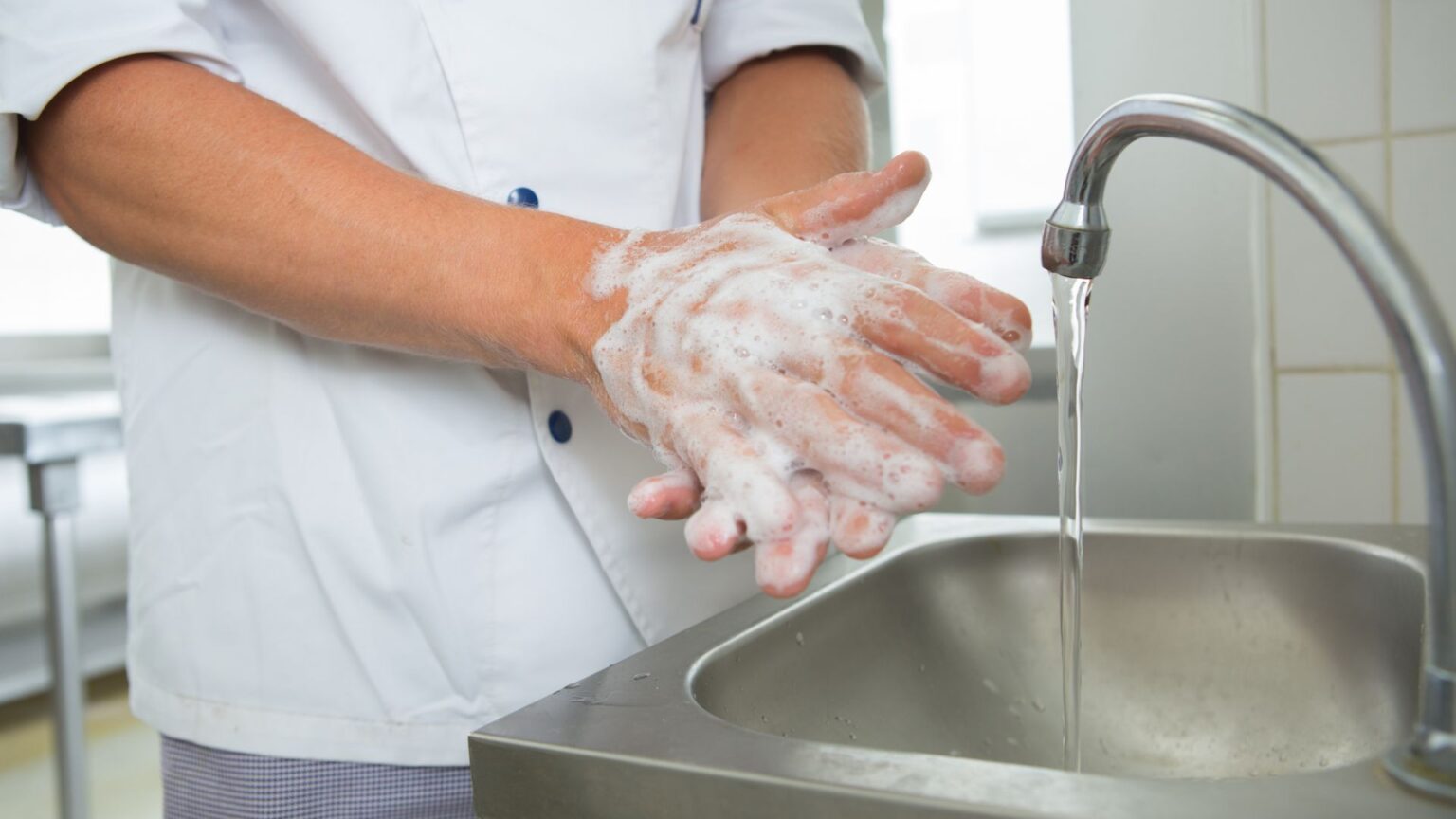

Hand hygiene is a fundamental practice for promoting public health and preventing a wide array of avoidable infections. Every year, millions of illnesses, from the common cold to more severe infections like pneumonia, can be traced back to unwashed hands. Despite its simplicity, the act of washing hands with soap and water can dramatically reduce the prevalence of gastrointestinal illness and other diseases that spread through touch.
Proper hand hygiene not only helps individuals stay healthy but also has a profound impact on communities by limiting the spread of germs. In settings from kitchens preparing food to global health care facilities, ensuring that everyone practices effective hand washing is crucial. It is the first line of defense against the transmission of harmful bacteria and viruses, emphasizing why hand washing is not just a personal responsibility but a public necessity.

Effective hand hygiene is crucial for preventing diseases and improving public health, encompassing a range of practices from simple hand washing to complex infection control measures.
Fact: Hand washing can prevent 30% of diarrhea-related sicknesses and 20% of respiratory infections (CDC Stacks).
Global Implications: Lack of access to clean water and soap exacerbates health issues in developing countries.
Solutions: Increase infrastructure for basic water services and distribute appropriate soap products to underserved areas.
Fact: Proper hand hygiene prevents about 70% of infections acquired in hospitals (CDC).
Global Implications: Inconsistent practices lead to high variability in infection control success across global health care facilities.
Solutions: Standardize hand hygiene protocols and ensure availability of hand sanitizers in all medical institutions.
Fact: Improved hand hygiene practices can save hospitals an average of $16.5 for every dollar spent on hand hygiene programs (CDC Stacks).
Global Implications: Economic burdens due to healthcare-associated infections are significantly higher in low-resource settings.
Solutions: Fund hand hygiene initiatives as cost-effective health measures that reduce overall healthcare spending.
Fact: Hand hygiene is a key strategy in combating antimicrobial resistance (AMR) (CDC).
Global Implications: Rising rates of AMR are a global crisis, worsened by inadequate hygiene in healthcare settings.
Solutions: Implement comprehensive infection prevention measures and promote the use of alcohol-based hand sanitizers.
Fact: Effective hand hygiene is crucial for controlling the spread of highly infectious diseases like COVID-19 (CDC).
Global Implications: Epidemics spread faster in areas without adequate hand hygiene facilities.
Solutions: Deploy emergency hand washing stations and public health campaigns during outbreaks.
Fact: Over 3 billion people worldwide lack access to basic hand washing facilities (CDC).
Global Implications: This deficiency leads to higher rates of disease transmission in densely populated and underprivileged areas.
Solutions: Global investments in water and sanitation infrastructure to ensure universal access to hand washing facilities.
Fact: School-based hand hygiene programs can reduce sickness-related absences by up to 57% (CDC).
Global Implications: Many schools, especially in rural areas, do not have proper hand washing facilities.
Solutions: Implement school-wide hand hygiene programs and build facilities with reliable running water.
Fact: Regular hand washing in the workplace reduces the incidence of disease transmission and increases productivity (CDC).
Global Implications: Workplaces without proper hand hygiene facilities contribute to higher employee sickness rates.
Solutions: Encourage businesses to install hand washing stations and educate employees on proper hand hygiene.
Fact: Cultural beliefs and practices significantly affect hand hygiene behaviors (CDC Blogs).
Global Implications: In some cultures, hand washing is not routine, contributing to the spread of illnesses.
Solutions: Culturally sensitive educational campaigns to promote hand hygiene as a universal health practice.
Fact: Hand washing before cooking and eating reduces the risk of foodborne diseases (CDC).
Global Implications: Poor food safety practices related to inadequate hand hygiene can lead to widespread health issues.
Solutions: Food safety training programs emphasizing the importance of hand hygiene in food preparation areas, even for proper use of sinks in food trucks.
| Myth | True/False | Explanation |
| Washing hands without soap is as effective as washing with soap. | FALSE | Soap is crucial for effectively removing oils and dirt that carry germs; water alone is less effective. |
| Hand dryers are more hygienic than paper towels. | FALSE | Paper towels are more hygienic because they do not spread bacteria and viruses like air dryers can. |
| You have to wash your hands for at least 60 seconds. | FALSE | Effective handwashing can be achieved in 20-30 seconds; longer durations don’t significantly increase germ removal. |
| As long as you wash your hands, you will not get sick easily. | TRUE | Regular handwashing significantly lowers the risk of contracting diseases, though it’s not an absolute guarantee against illness. |
| Antibacterial soap is necessary to effectively remove germs. | FALSE | Regular soap and proper technique are sufficient for removing germs; antibacterial soap does not offer additional benefits. |
| Alcohol-based hand sanitizers are not necessary if you wash your hands with soap and water. | FALSE | Hand sanitizers are an effective alternative when soap and water are not available, especially in reducing viral transmissions. |
| Washing your hands frequently can weaken your immune system. | FALSE | Frequent handwashing does not weaken the immune system; it prevents the spread of infections. |
| It’s okay to skip handwashing if you haven’t touched anything dirty. | FALSE | Germs are not always visible; handwashing should be routine, especially before eating, after using the toilet, or when in public. |

Washing hands at critical times is essential for preventing the spread of infections and maintaining good health. Whether you’re preparing food for a concession stand, caring for the sick, or just returning from public spaces, proper hand hygiene plays a crucial role in stopping the transmission of germs and protecting your health.Make sure to teach your kids about hand washing to reduce the risk of spreading diseases in any of the following scenarios.
Before, During, and After Preparing Food
Before Eating Food
Before and After Caring for Someone at Home Who is Sick
Before and After Treating a Cut or Wound
After Using the Toilet
After Changing Diapers or Cleaning Up a Child Who Has Used the Toilet
After Blowing Your Nose, Coughing, or Sneezing
After Touching an Animal, Animal Feed, or Animal Waste
After Touching Garbage
After Handling Money
Before and After Visiting a Hospital or Medical Facility
Effective hand hygiene is vital in health care settings to prevent the transmission of infections and protect both patients and health care workers. Proper hand washing can dramatically reduce the incidence of healthcare-associated infections (HAIs), which are among the most common complications in hospital care.
Every year, millions of patients around the globe acquire HAIs, significantly impacting morbidity, mortality, and healthcare costs. For instance, it is estimated that on average, about 1 in 31 hospital patients has at least one healthcare-associated infection. Moreover, diligent hand hygiene practices have been shown to decrease the rates of certain HAIs by up to 50%. This not only underscores the importance of hand hygiene in maintaining safety in healthcare environments but also highlights its effectiveness as a cost-saving measure due to reduced infection rates and shortened hospital stays.

Hand hygiene plays a pivotal role in preventing the spread of infectious diseases and maintaining overall health. Regular and proper hand washing techniques are essential for everyone, particularly in environments where the risk of infection is high. By consistently practicing good hand hygiene, individuals can protect not only themselves but also those around them from illness.
To further facilitate consistent hand hygiene practices in any setting, consider utilizing Ozark River Manufacturing Co.’s portable sinks. These sinks are not only convenient and effective but also compliant with NSF regulations, making them ideal for healthcare applications. Invest in your health and safety today by choosing Ozark’s reliable and compliant hand hygiene solutions.

Not washing hands can lead to the spread of germs and increase the risk of avoidable infections acquired from common objects or after contact with dirty hands.
Hand hygiene plays a critical role in health care delivery by preventing the transmission of many diseases between patients and healthcare workers, thus maintaining a safe environment.
It is recommended to wash your hands multiple times throughout the day, especially before eating, after using the toilet, or when your hands are visibly dirty to prevent getting sick and spreading germs. Fortunately, advances in portable sink technology contribute to their popularity and accessibility in our daily lives, enabling healthy hand washing habits no matter where you are.
Using a paper towel or air dry methods are effective. Paper towels are particularly beneficial because they can remove additional germs that might remain after hand washing.
Plain soap and clean running water are highly effective for hand washing. There is no need for antibacterial soap under normal circumstances, as thorough hand washing with plain soap reduces the presence of more bacteria.
Hand sanitizer can be used when soap and water are not available, especially if your hands are not visibly dirty. It’s effective in reducing germs and plays an important role in preventing disease.
Wet your hands with clean running water, then apply soap. Rub your hands together to create a lather, ensuring to scrub all surfaces, including the backs of your hands, between your fingers, and under your nails, for at least 20 seconds.
The ‘Happy Birthday’ method involves singing the “Happy Birthday” song twice, which takes about 20 seconds, as you lather and scrub your hands. This timing helps ensure that you’re washing long enough to effectively remove germs.

Ozark River Manufacturing designs and delivers top-quality, NSF-certified portable sinks. Since 2006, our inventive and bold team has ensured health compliance with quick-connect tanks and instant hot water. With over 55 models, we provide solutions for every need, backed by exceptional customer support and timely delivery. Healthy people matter, and we make a positive impact every day.


Take your time but make sure to save your cart. Drop us your email and we'll take care of the rest!
Code Compliance
Order Cancellations or Modifications
Delivery
Damages and Replacements
After-the-Sale Support
Contact Information
Lead-Times
Our goal is to get you your portable sink in the fastest, most economical method possible. All orders are shipped from our Assembly Plant in Murfreesboro, TN 37129 with a truck carrier (LTL) to the 48 contiguous states. Lead-times vary by product, are demand-driven, and are updated on the product detail pages. Large orders may increase lead-times. Expedited or shipping outside of the 48 contiguous states is also available and may incur additional costs. Please call 866.663.1982 for availability.
Order confirmations include estimated ship dates and are subject to change without notice.
Order Cancellations or Modifications
You can cancel or modify your order in writing before the product has shipped from our location. Cancelations may incur a 5% processing fee if paid by credit card. Please call 1.866.663.1982 or email us at Orders@ozarkriver.com.
Orders that have left our dock will incur a 30% restocking fee, as well as all incurring freight and/or damage charges. The customer is responsible for all damages, so please follow all provided return instructions carefully. Absolutely no changes or cancellations are allowed on custom or large orders.
Disclaimer: Models, styles, colors and availability may change without notice.
[ninja_form id=9]
[caldera_form id=”CF5f5fdf04c0b03″]
We believe that it is our personal responsibility to provide clean hands for people and business because, now more than ever, healthy people matter.
From restaurants and food service businesses that gain new convenience and opportunities as a result of our Ozark River Portable Sinks®, to educators and daycare centers that have healthier students and fewer absentees, to businesses that are now in hand wash code compliance due to implementing our portable sinks – lives our improved with every portable hand sink we manufacture.
We love what we do. We win together. We never give up. We don’t cut corners.
We have a vision with a clear focus – improve lives every day with a convenient solution for better personal hygiene, and the ability to comply with state and local hand wash codes – and we’ve maintained that focus since 2004.
We love saving your day, and we are ‘all hands on deck’ when you need after-the-sale support.
If you’ve ever been cited by a health code inspector for hand-washing code violations, you know how it feels to be in hot water. When hand-washing compliance calls, we answer. And although our sinks are unsinkable, should you need support, we’re here with happy, helping hands.
Support remains at the top of our priority list. We’re here when you need us, and even when you don’t. Call the hotline for application, operation or general support. We’ll be standing by, ready to help with troubleshooting assistance; warranty parts and service; replacement parts and service.
Our sinks have only a .003% warranty replacement rate, which means a 99.7% success rate! Now, that’s a badass sink.
Happy, positive people make products that make other people happy. We’re serious about having fun at work. We take our work seriously, but we don’t take ourselves too seriously.
Ours is a team of highly inventive, bold individuals who happen to make portable sinks. We’re the best at what we do, and we know it.
Our culture prioritizes people and positivity because we know that when our team is joyful, we strive even harder to make you happy.
We invented a line of portable sinks that are well-made, delivered quickly, and installed in a snap. We build them ourselves because nobody else can do it like we do.
Our sinks comply with the rigorous NSF standards, which means that our products undergo relentless testing and our facilities are inspected unannounced. We don’t mind. In fact, we welcome the challenge to perform because we know that the standards are set for the protection of our customers.
Without the expense of plumbing, each customer gains the hygiene benefits of instant hot water with a portable sink.
Our attention to quality is as pure as the hot water we dispense. All of our portable sinks feature instant hot water technology and convenient quick connect tanks. With a variety of styles, sizes and finishes available, every Ozark River Sink is crafted to sturdy, attractive perfection.
We respect your needs and your time. Once you decide to purchase your portable sink, you want to begin reaping the benefits of clean, healthy, happy hands as soon as possible!
Ozark River Manufacturing is uniquely positioned to reach customers and suppliers quickly, efficiently, and cost-effectively. We have shorter lead times than any competitor, [simply say, short lead times?] and a robust distribution network, allowing us increased service capabilities for our customers.
Middle Tennessee’s central location connects us to customers faster; home to the busiest cargo airport in the western hemisphere, six Class 1 railroads, more than 1,000 miles of navigable waterways, and immediate access to eight interstate highways.
What do these nifty stats mean to you? It’s simple. We can reach 60 percent of the U.S. population within an 11-hour drive or less.
Bottom line? With reduced shipping times, you’ll enjoy better health and hygiene with your portable sink as soon as possible.
Remember when someone told you NOT to “put all of your eggs in one basket”? Phooey!Do one thing and do it well. That is our absolute conviction.
Ozark River Manufacturing Co.® is the world’s foremost portable sink manufacturer because this is what we do. In fact, it’s all we do. We design, manufacture, and deliver the finest portable sinks available on the planet. And we proudly believe that is enough.
Hot water hand sinks provide a convenient solution to improve personal hygiene and to comply with state and local codes. Our everlasting commitment to provide a top-quality product that is essential to maximizing health and safety.
Life and business can be challenging. You have a long list of things to do. We are here to make hand washing compliance as easy as possible. Give us a call and check one thing off that list.